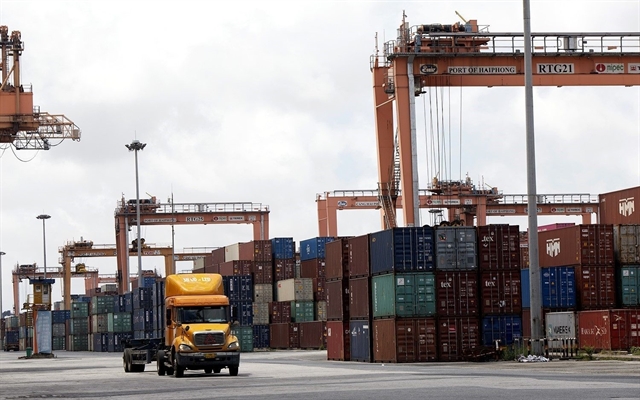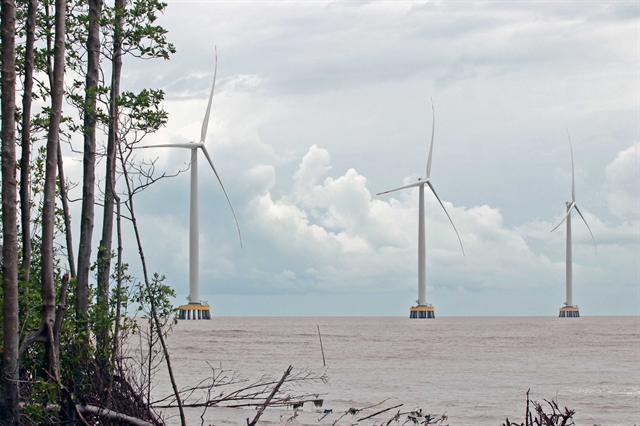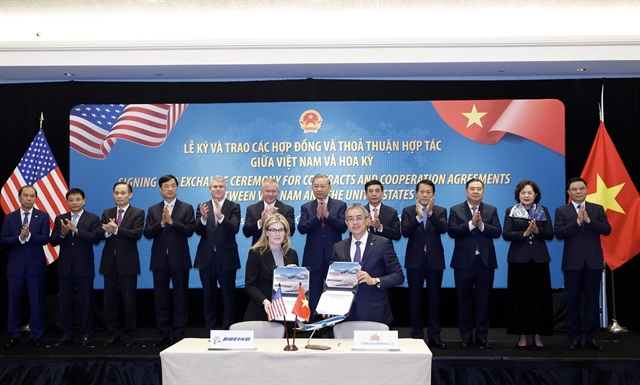 Economy
Economy

 |
| Wind turbine in Cà Mau Province. — VNA/VNS Photo Huỳnh Anh |
HÀ NỘI — Việt Nam’s ambitious shift to renewable energy is gaining momentum, but crucial legal and practical challenges in recent policies need urgent attention to ensure a smooth and transparent energy transition, according to the Ministry of Industry and Trade.
Deputy Minister Nguyễn Hoàng Long spoke at a conference on Thursday reviewing two key government decrees – Decree No 57/2025/ND-CP on direct power purchase agreements (DPPA) and Decree No 58/2025/ND-CP on renewable and new energy development.
He described the frameworks as breakthrough policies that lay a solid legal foundation for energy transition and sustainable growth but warned the implementation process has encountered roadblocks that must be addressed swiftly.
Decree 57, effective from March this year, enables large electricity consumers to purchase power directly from renewable energy producers either through their own transmission lines or via the national grid. Under the grid-based model, producers sell electricity through the spot market, with transactions settled by Electricity of Vietnam (EVN).
Meanwhile, Decree 58 sets out preferential policies to encourage the development of energy storage systems alongside incentives for research and development in wind and solar power.
“The decrees have initially created a unified legal framework to promote energy development nationwide, but several problems have been revealed in practice,” said director of the Electricity Regulatory Authority Phạm Nguyên Hùng.
Regarding Decree 57, three key issues need urgent resolution: pricing frameworks for private grid connections, settlement costs for transactions via the national grid and certification procedures for rooftop solar projects.
Hùng highlighted that pricing rules must be aligned with the newly adopted Law on Electricity 2024 and stressed the need for careful assessment of the impact of removing settlement cost mechanisms.
For Decree 58, which focuses on self-generation, self-consumption and offshore wind development, some companies have requested an expansion of eligibility criteria to sell excess electricity. They also called for clear and consistent requirements for monitoring and control equipment to ensure compatibility with system capacities.
Offshore wind developers urged clearer regulations on eligibility for incentives, suggesting detailed rules for survey plans and limits on maritime survey zones to align with domestic laws and international practices.
To ensure effective implementation, Deputy Minister Long called on provincial and municipal people’s committees to strengthen oversight and actively supervise DPPA rollouts and renewable energy projects, with challenges and recommendations to be promptly submitted to the Ministry of Industry and Trade.
EVN has been urged to provide an official opinion on the proposed removal of settlement costs for DPPA transactions via the national grid as soon as possible.
The Electricity Regulatory Authority has been tasked with drafting amendment proposals under a fast-track process to keep the decrees practical and consistent with evolving market needs.
Long concluded by urging strong coordination and determination among regulators, local authorities and enterprises to ensure the new mechanisms deliver real impact and support Việt Nam’s sustainable energy development goals. — VNS




